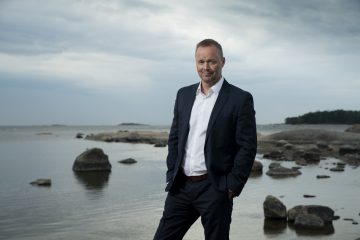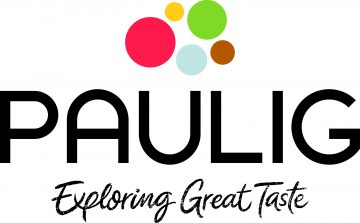What does sustainability mean in the corporate world in 2019?

Rolf Ladau,
CEO,
Paulig
Picture: © Valtteri Kantanen
The perception of sustainability has become much more concrete in the business world in recent years. There is a clear shift in the approach: sustainability work no longer consists of separate projects, but it is more comprehensive. Nowadays, we talk about sustainable business.
Paulig has a long-term commitment to sustainability. In 2014, we set ourselves a goal: all of our coffee beans should be supplied from verified sustainable sources. At the start of this year, we were happy to note that we had accomplished our goal—all of the over 50 million kilograms of green coffee that we source every year comes from verified sustainable sources. Our other goal is that by the year 2025, all our coffee packages will be made from renewable, plant-based raw materials. Paulig’s coffee and food production facilities in Finland and Sweden are powered with biogas. And with our recipes, we want to achieve not only great and unique taste but also simplicity and naturalness. Today, less really is more in ingredients lists: The shorter the list, the more attractive the product!
Sustainability should be perceived as an integral part of the company’s operations, taking into account the entire value chain. This is challenging, but partial optimisation does not yield concrete results when it comes to sustainability.
In December 2018, I visited three countries of origin: Uganda, Kenya and Tanzania. I saw how coffee is cultivated, what our sustainability work means in practice and what each stage of the process is like. I visited several production facilities and met dozens of partners and farmers. I gained personal insight into our sustainability work, coffee cultivation practices, and sourcing. During my journey, I saw how coffee farmers were taught new methods and techniques on a very practical, hands-on level. Our efforts can also be seen in the farmers’ everyday lives as increased profitability and well-being. For example, they get access to clean drinking water and education for their children.
New food solutions needed
The UN’s Intergovernmental Panel on Climate Change (IPCC) report, which was released last autumn, made the future of our planet seem rather dark and provoked fruitful discussions here in the Nordic countries. One could say that almost every consumer nowadays has at least a latent understanding of the change. Therefore, people are more willing to accept new products and ways of working.
The grim facts about the state of our planet motivate the younger, highly aware generation to create completely new kinds of products and technical innovations that address the challenges of climate change. In the future, people will harness their energy and expertise to combat ecological problems. And corporate sustainability work will also become more tailored: individual needs will be taken into account more closely at each stage of the production chain. This is what I strongly believe, and I am looking forward to the exciting new innovations.
Sustainability work is never ready, it is an endless process with no end in sight. This makes the whole endeavour challenging, as can be seen in social discussions about sustainability. Because the end is nowhere to be seen, the discussions tend towards the negative. This is understandable. After all, there is always room for improvement.
However, many companies work hard to promote sustainability with impressive results. Examples of successful sustainability work are already out there. I hope that discussions on sustainability work would reflect this, with a greater emphasis on successes. This would inspire people and companies to take new concrete measures, creating a circle of good.
We cannot overcome difficulties with hopelessness and negativity. The Western business world needs an attitude shift: companies should dedicate themselves to work for and share hope of a brighter future.

Facts about Paulig
- International family-owned food company founded in Helsinki 1876.
- Key markets: Nordic countries, Baltics, Russia and Central-Europe.
- Sales in 2017: 929 MEUR
- Personnel: 2.000 in 13 countries
- Brand portfolio: Paulig, Santa Maria, Risenta, Gold&Green
Picture: © Valtteri Kantanen
Expert article 2491
